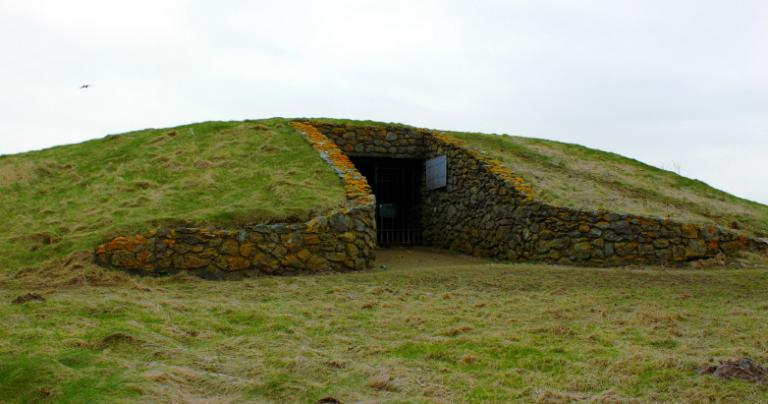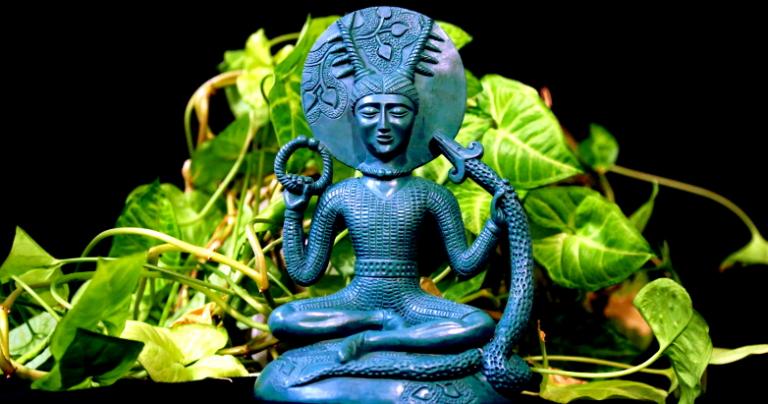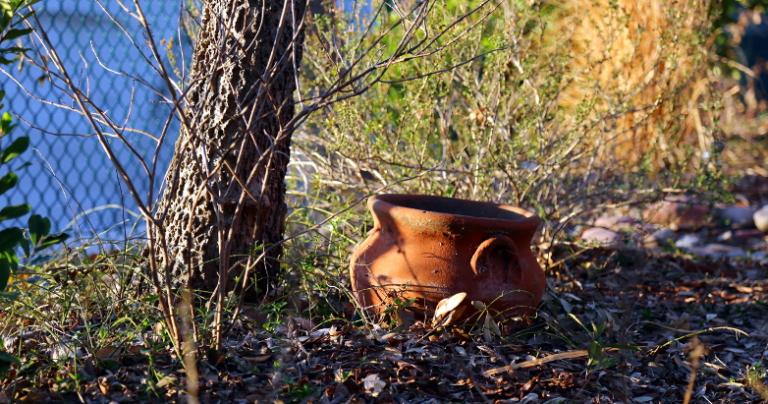If there’s one primary theme running through almost 10 years of blogging at Under the Ancient Oaks, it’s this: religion is best approached through facts and reason, but reason alone will never build a deep and meaningful religion.
Facts and reason: the antidote to oppressive religion
I’ve told this story many times, but it’s worth telling again. I grew up in a small fundamentalist Baptist church, where I was taught the bible was the literal and inerrant Word of God, and that the few “saved” were going to heaven and the many “lost” were going to hell. As a small child I believed what the authority figures told me. My parents believed them, so they must be right… or so I assumed.
By about age nine I knew something wasn’t right. How could a God of Love send billions of people into eternal torment for following the wrong religion? I didn’t have the breadth of knowledge to understand just how and why it wasn’t right.
But I knew what I was taught about creation, the age of the earth, and the flood didn’t match with what I learned through science. Even at an early age I realized that science doesn’t have all the answers, but what science does know, it can prove (or very nearly so) with a high degree of confidence.
When someone claims inerrancy, all you have to do is find one error and the whole house of cards collapses. Facts and reason showed me the fundamentalists were wrong… and taught me the foolishness of seeking certainty in matters where certainty is impossible.
Since becoming a Pagan, facts and reason have shown that the true history of Wicca and witchcraft are far more interesting than the errors promoted by Margaret Murray. Modern Druidry’s connections to the ancient Druids are tenuous at best, but our movement has been around for a good 300 years. And Western magic is far older than anyone imagined.
If people choose to believe things that cannot be proven (I certainly do), that’s their business. If they tell you that you must believe them too, ask them how they know. If their answer doesn’t satisfy you, walk away, and keep looking for one that does.
The primacy of religious experience
For all my love of science and reason, and for all my dislike of fundamentalism, I never considered becoming an atheist. There’s always been something inside me whispering “there’s more.”
There’s something about the mountains and trees, the wind and rain, and a flickering fire. There’s something about standing under the night sky, looking up at the same stars and moon my ancient ancestors saw, realizing the universe is so vast and I’m so small, and yet here I am, a part of it all.
And then there was the night when someone said “we should draw down the Moon” and what came through was not the Moon or the Mother Goddess, but a certain Forest God who introduced Himself after years of watching me from a distance safe enough for my limited beliefs.
And my world has never been the same.
I didn’t know what it all meant. I’m still not exactly sure. But I am sure of this: these experiences and many others like them are the deepest, most meaningful, and most real parts of my life. And I’ll be damned if I’m going to let some skeptic tell me to rationalize them away because he can’t fit them into his worldview and they make him uncomfortable.
Experiences lead to beliefs, as we try to figure out what they mean. Beliefs lead to practices, as we try to re-create our experiences, and as we implement the messages we receive. And practices lead to more experiences, generating a virtuous circle of experience, belief, and practice.
But please, don’t take my word for it. A good religion can be inspired by one person’s experience, but a healthy religion facilitates experiences for everyone. Experience the Gods and Nature for yourself.
A reasonable approach to ecstatic and magical religion
Facts and reason alone are insufficient to build a deep religion. But there’s no need to abandon them as we build an ancestral, devotional, ecstatic, oracular, magical, public, Pagan polytheism.
So you had a first-hand experience of… something. What did you see? What did you hear? What did you feel? What thoughts went through your head? Are those your own thoughts? Is it something you had no way of knowing? Something you know is true even though you don’t want to accept it? Or perhaps, something you wish was true even though you know it’s not…
The Gods rarely if ever appear in front of us and announce “I AM ODIN!” – and if something ever does, odds are good it’s a lesser spirit that’s lying to you. The Gods tend to be much more subtle and indirect. Why? I don’t know – the Christian God is not the only one who works in mysterious ways. I suspect They know that if you aren’t willing to put in a bit of research to figure out Who you’re talking to, you’re probably not going to be willing to do the work They want you to do for Them.
Magic? There are plenty of different magical methods and traditions. Pick the one that calls to you, then approach it reasonably. Read and study. Practice diligently. Keep good records. See what works and what doesn’t. If something works, keep doing it. If it doesn’t, try something else.
Belief is irrelevant – do the spells right and you’ll get the results. But practice long enough and eventually the results will force you to believe. Yes, coincidences happen. But coincidence after coincidence after coincidence is rarely coincidence.
The proof is in the living
In our political arguments – particularly around contentious topics – we’ve learned that if you confront most people with facts that contradict their beliefs, they’ll bend over backwards to deny the facts and hang onto what they already believe. They’re invested in their beliefs, and they don’t want to have to admit they were wrong – even to themselves.
We don’t want to be like that. The truth always matters, even when it’s hard and unpleasant. Even when it forces us to re-evaluate our ideas about how the world works and what is and isn’t possible.
And yet in the realm of religion, ultimate certainty is not possible. We can’t know if our beliefs and practices are “right.” Our proof is more subjective.
Does your religion help you deal with life? Does it provide meaning in the deaths of loved ones and other losses? Does it prepare you for the eventual certainty of your own death? If so, it’s good.
Does it help you understand your place in the universe? Does it help you build a model of the way the world works? Does it provide context for your experiences, both sacred and profane? If so, you’re onto something.
Does it inspire you to honor those who came before you, and to build a better world for those who come after you? Does it motivate you to sacrifice today for a better tomorrow, for yourself and for others? If so, you’re on the right track.
Does it help you form and maintain reciprocal relationships? Does inspire you to see the personhood in other people, other species, and other ecosystems? Does it challenge you to respect their sovereignty and autonomy? If so, you’re following a good religion.
We can’t judge our religion by some ancient text. But we can judge it by the impact it has on our lives and the lives of others.
If it works, keep doing it. If it doesn’t, try something else.
This is why I’m here
In the past week, numerous people have talked about what good religion must do or should do… and by extension, what they think I should be writing about. They’re welcome to their opinions, and if they identify as Pagans, there’s room for them in the Big Tent of Paganism. I wish them well. But I know who I am and why I’m here.
I’m here to present facts and reason in the face of oppressive religion. I’m here to explore my religious experiences and to teach others how to have their own. I’m here to interpret my experiences in the most meaningful ways possible.
And I’ll judge how well I’m doing by its impact on my life and on the lives of those around me, especially those who read what I write and try it for themselves.



















